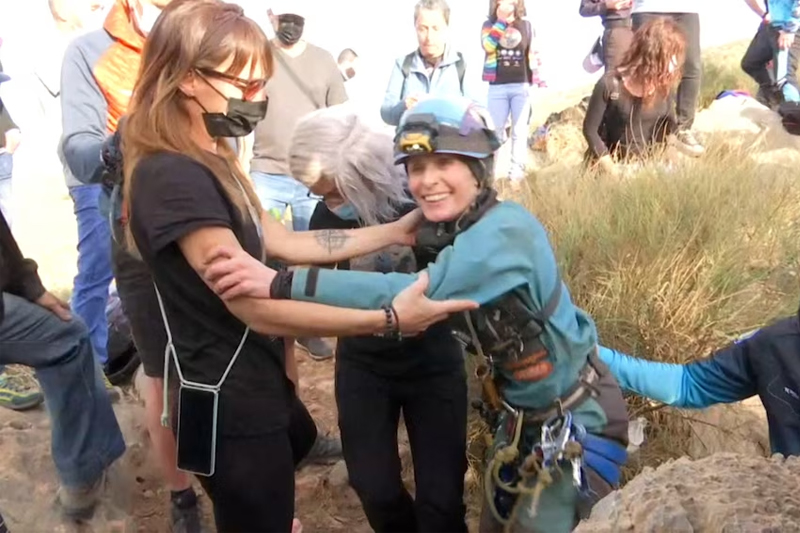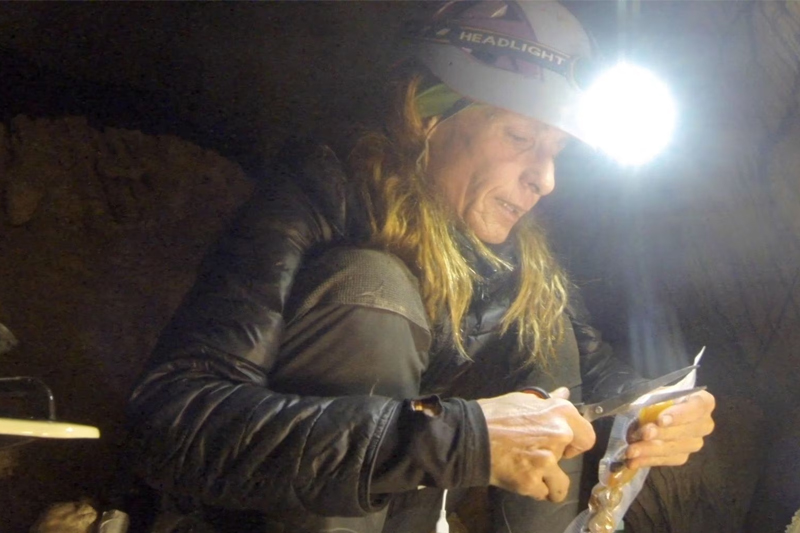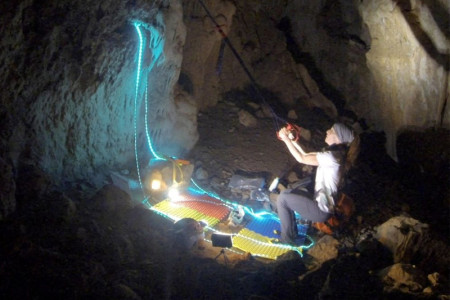Wearing dark glasses and smiling as she adjusted to the light of spring in southern Spain, elite mountaineer Beatriz Flamini told reporters that time had flown by and she did not want to come out.
“When they came in to get me, I was asleep. I thought something had happened. I said: ‘Already? Surely not.’ I hadn’t finished my book,” she said.
Flamini’s support team said she broke a world record for the longest time spent in a cave in an experiment monitored by scientists studying the human mind and circadian rhythms.
She was 48 when she went into the cave, celebrating two birthdays alone underground.
Flamini began her challenge on Saturday, Nov 20, 2021 – before the outbreak of the Ukraine war, the end of Spain’s Covid mask requirement and the death of Britain’s Queen Elizabeth II.

She did come out for eight days, her team disclosed, but stayed isolated in a tent waiting for repairs to a router used to send audios and videos to tell her team how she was doing.
On Friday, she was greeted by a phalanx of cameras and her support team who encircled her in a hug.
Asked if she ever thought about pressing her panic button or leaving the cave, she replied: “Never. In fact I didn’t want to come out.”
Knitting and reading
Flamini spent her time underground doing exercises, painting and drawing and knitting woolly hats. She took two GoPro cameras to document her time, and got through 60 books and 1,000 litres of water, according to her support team.
She said she began her challenge trying to keep track of time. “On day 65 I stopped counting and lost perception of time,” she said.
There were hard moments – such as when the cave was invaded by flies – and some “beautiful ones”, she said. “If this is your dream, and you’re realizing it, why are you going to cry?”
She said she had focused on retaining “coherence”, eating well and relishing the silence. She looked forward to treats such as avocados, fresh eggs and clean t-shirts that her support team sent down before, “like gods”, also removing her waste.
“I didn’t talk to myself out loud, but I had internal conversations and got on very well with myself,” she joked.
“You have to remain conscious of your feelings. If you’re afraid, that’s something natural but never let panic in or you get paralyzed.”

She said her team had been told to contact her under no circumstances, even about a family death. “If it’s no communication it’s no communication regardless of the circumstances. The people who know me knew and respected that.”
Flamini was monitored by a group of psychologists, researchers, cave specialists and physical trainers looking for insight into how social isolation and disorientation can affect time, brain patterns and sleep.
She was looking forward to a shower and sharing a plate of fried eggs and chips with friends. She said she would put herself in the hands of doctors to study the impact on her body and mind before planning new mountaineering and caving projects.
The Guinness Book of Records website awards the “longest time survived trapped underground” to 33 Chilean and Bolivian miners who spent 69 days at a depth of 688 meters (2,257 ft) trapped in 2010.
A spokesperson for Guinness was not able to immediately confirm whether there was a separate record for voluntary time living in a cave and whether Flamini had broken it.


